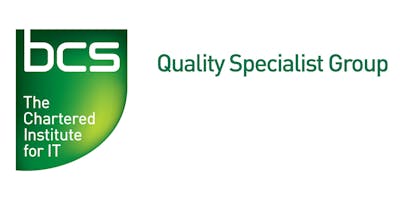If you are booking as a BCS Member please enter the promotional code of BCSMember please also ensure you provide your membership number when registering on the day
Summary
Our experience, and perhaps yours, is that Top Level IT project requirements are a useless mess. We can certainly blame our management, but it might be more useful to deal with the ‘bad inputs you have’; make sense of them, and perhaps even get management buy in to your efforts. The ‘Top Level’ IT project requirements are those that are the primary expectation from your project sponsors, funders and other critical stakeholders. They define project success, and failure.
This course will present specific practical methods for analysing whatever requirements sources you can find, finding more relevant requirements that are below your radar, and organising them, clarifying them, enriching them, and quality controlling them.
The entire ‘better requirements’ subject is vast. So, in this day, we will give specific actions, some examples, and then access to extensive written advice, to complete your knowledge.
Content.
- 1. Overview of basic principles of advanced requirements analysis.
- 2. Identification methods: how to spot real requirements
- 3. Sorting methods: stakeholders, and levels of responsibility
- 4. Clarification methods: ‘perfect' understanding and testability
- 5. Enhancement Methods: adding data for risk and priority management
- 6. Presentation Methods: getting your ‘new’ picture across to others
- 7. Quality Control Methods: measuring and motivating requirement quality
About the Teacher: Tom Gilb
Tom Gilb and Kai Gilb have, together with many professional friends and clients, personally developed the IT methods they teach. The methods have been developed over five decades of practice all over the world in both small companies and projects, as well as in the largest companies and projects. Their website www.Gilb.com/ offers blogs, videos, books, papers, slides, and cases about IT and other subjects.
There are many organisations, and individuals, who use some or all of their methods. IBM and HP were two early corporate-wide adopters (1980, 1988). Recently (2001- 2016) over 20,000 engineers at Intel have voluntarily adopted the Planguage requirements, specification methods; in addition to practicing to a lesser extent Evo, Spec QC and other Gilb methods. Reported Intel results are 200-300% productivity improvement (Terzakis)
Many other multinationals are in various phases of adopting and practicing the Gilb methods. Many smaller companies also use the methods. They have advised top management at UK Companies on Business Agile.
Tom is the author of ten published books, and hundreds of papers on IT and related subjects. His 2005 book ‘Competitive Engineering’ (CE) is a detailed handbook The CE book defines an Agile Planning Language, called 'Planguage' for Quality Value Delivery Management.
His new (digital only) book ‘Value Planning’ 2016 is available digitally (leanpub.com/ValuePlanning, and gilb.com (discount for participants).
Tom has guest lectured at universities all over UK, Europe, China, India, USA, Korea - and has been a keynote speaker at dozens of technical conferences internationally.
He did a TEDx talk in Trondheim in 2013.
Tom is an Honorary Fellow of the BCS.














